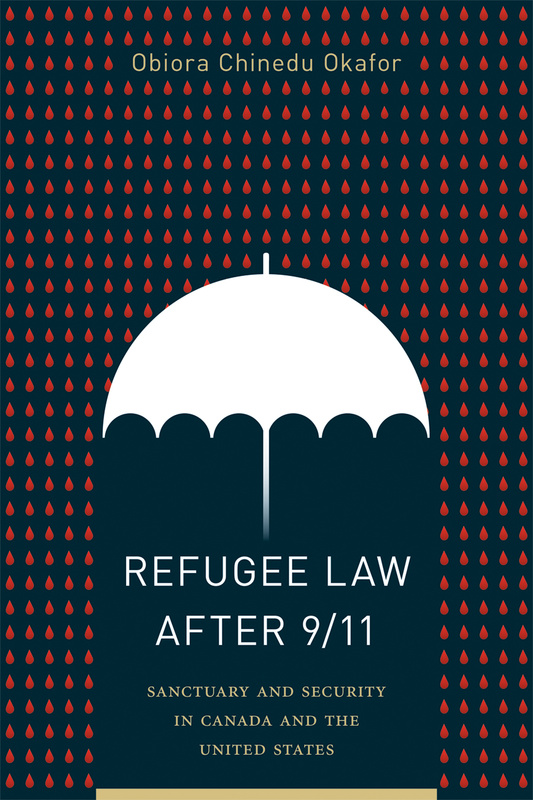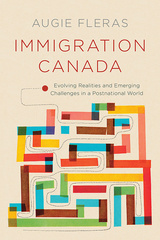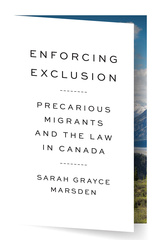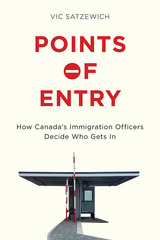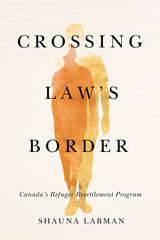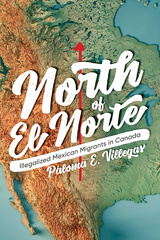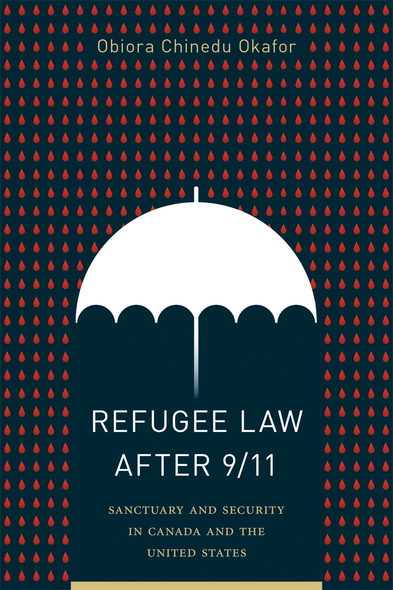
Refugee Law after 9/11
Sanctuary and Security in Canada and the United States
Common wisdom suggests that the 9/11 terrorist attacks changed everything about the character of refugee law in the United States, and even in neighbouring Canada. But did they? And if so, how do the responses of the two countries, including heightened security and more pronounced security anxieties, compare in terms of refugee rights?
Refugee Law after 9/11 undertakes a detailed, systematic examination of available legal, policy, and empirical evidence to reveal a great irony: refugee rights were already so whittled down in both countries before 9/11 that there was relatively little room for negative change after the attacks. It also shows that the Canadian refugee law regime reacted to 9/11 in much the same way as its US counterpart, raising significant questions about the power of security relativism and the cogency of the Canadian and US national self-image.
Obiora Okafor explores the logic behind changes in refugee law in Canada and the United States following 9/11 and up to the present, uncovering the reasons for the orientation of their respective refugee rights regimes in specific ways.
Scholars, students, policy makers, bureaucrats, migration/refugee workers, human rights workers, and all those concerned with refugee law, human rights, and national security will find this book necessary reading.
Professor Okafor's remarkable comparative study of the transformative impact of the September 11 attacks on American and Canadian refugee law regimes provides a pungent and startling window into the fragility of the democratic experiment. It lays bare the quick descent into the normalization of abominable policies in the face of a single, albeit historic, event and explains how and why the rights of refugees were jettisoned for security.
Professor Obiora Okafor’s book sparkles with comparative insights into the securitization of refugee law across time and borders. He tackles his comparison between Canada and the US with deep research, lucid analysis, and provocative argument.
In Refugee Law after 9/11, Obi Okafor provides a meticulously detailed examination of the often-presented but rarely questioned assumption that the Canadian refugee regime is more generous than that of the United States. Highlighting continuities and disjunctures in the wake of the September 11, 2001, terrorist attacks, his comparative investigation of key questions enables a thoughtful, measured, and illuminating analysis of these neighbouring legal frameworks and their compliance with international human rights law.
Okafor’s intricate empirical work forces readers to come to terms with the security apparatus that surrounds refugee law. The unique US – Canada comparative setting compels Canadians to grapple with an uncomfortable truth about themselves and their immigration mythology.
Introduction: Refugee Law after 9/11: A Canada-US Comparison
1 Deportations to Torture
2 The Detention of Asylum Seekers and Refugees
3 Terrorism-Related Inadmissibility
4 The Canada-US Safe Third Country Measure
Conclusion: Refugee Law, Security Relativism, and National Self-Image in Canada and the US after 9/11
Notes; Index

